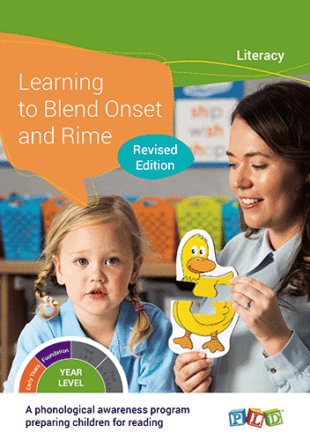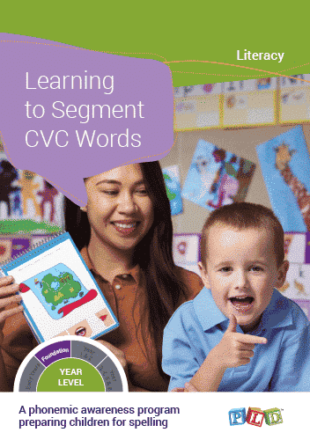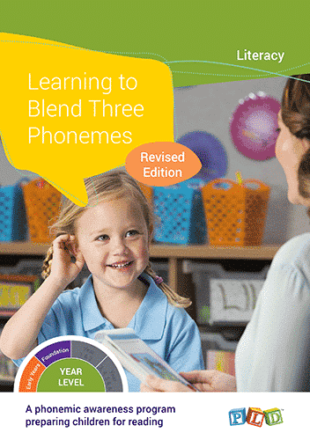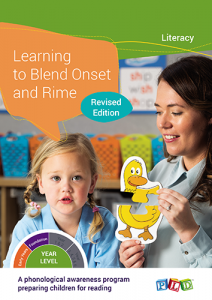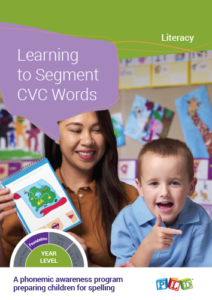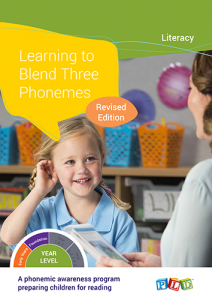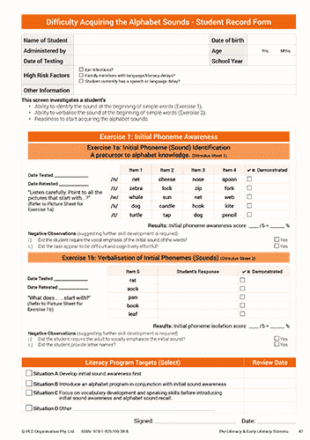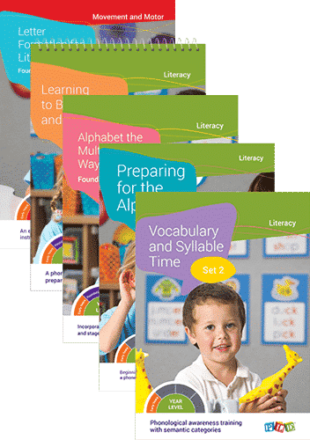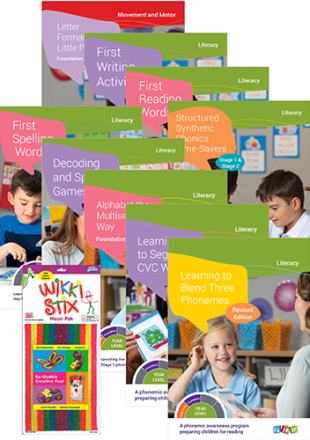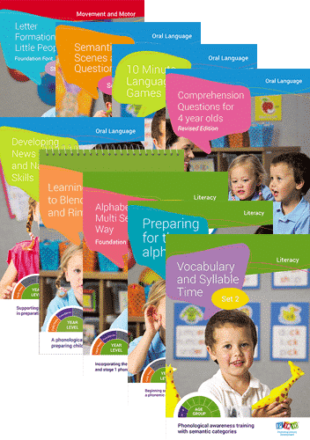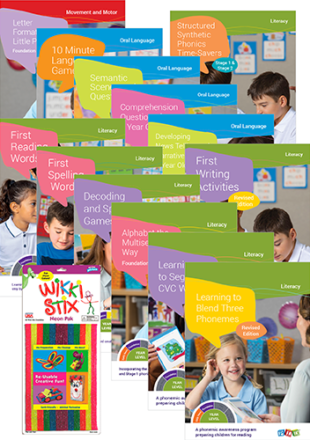| Book |
Pre-literacy Flip Book Bundle
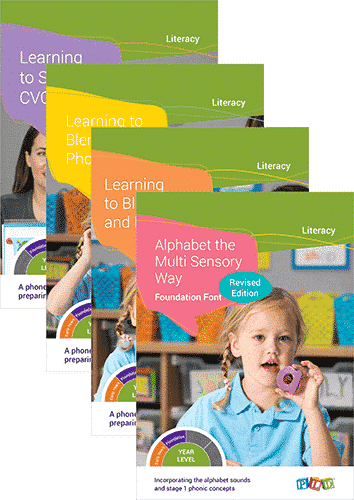
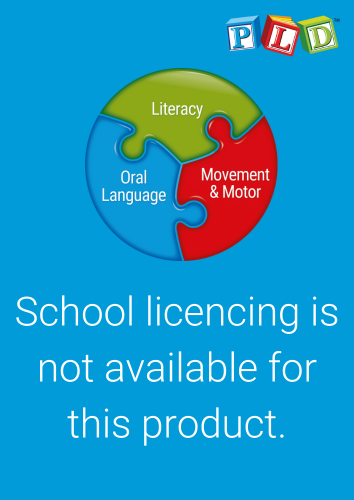
PLD’s bundle of Pre-literacy Flip Books provides a time-efficient way to teach segmenting CVC words, blending onset and rime, blending three phonemes and alphabet phonics concepts in Kindergarten or Preschool.
Buy all four resources in a bundle and save 15%. Click on each of the links below if you wish to view the stages individually.
This cost-effective bundle of bestselling flipbooks is ideal for teaching early phonics in Foundation and Early Years classrooms and using the resources requires little preparation by the teacher.
This bundle includes four A5 spiral-bound full-colour Pre-literacy Flip Books:
- Alphabet the Multi-Sensory Way – Foundation Font
- Learning to Blend Onset and Rime
- Learning to Segment CVC Words
- Learning to Blend Three Phonemes
Early Years: Kindergarten (WA/QLD/SA/TAS), Preschool (NSW/ACT/NT/VIC)
The Early Years are a significant period in a child’s development. For best outcomes, play and child-centered approaches need to be balanced with explicit targeted instruction. In the Early Years, PLD programs focus on pre-literacy skills such as phonological awareness and the alphabet sounds, as well as fine and gross motor and oral language skill development.
What should literacy development in Kindergarten/ Preschool include?
In early literacy, PLD’s programs focus on literacy skills and strategies such as phonological awareness and the alphabet sounds, as well as fine and gross motor skills, movement and oral language skill challenges.
It’s important to define literacy in education by using set topics, recognising the different stages of each strategy;
- Phonological awareness includes; syllable blending and segmentation, initial sound awareness and blending.
- The alphabet sounds used in developing early literacy include; alphabet sound knowledge (lower-case letter focus), alphabet sound recall (for reading), and alphabet formation (for how a word is spelled).
- PLD’s Structured Synthetic Phonics (SSP) alphabet letter of presentation order is matched with the letter formation order, promoting literacy development. In this way, when learning the alphabet sounds, students are simultaneously learning to write alphabetic fluency.
Pre-literacy Flip Book Bundle – School Licence


School licensing options are currently being developed to allow schools to share products with staff electronically (e.g. saved on servers or accessible within online platforms) and will be available soon. If you would like to be notified when this offering is available, please express your interest here.
Books: PLD’s books may be used by the authorised purchaser within their classroom, however there are restrictions regarding modifying, copying or sharing. Full details can be found here.
School Licences: A School Licence allows access to a resource to be shared with an unlimited number of employees who are employed by the ‘Authorised purchaser’. These resources can be accessed by multiple users simultaneously and can be printed (subject to restrictions) or displayed by employees of the ‘Authorised purchaser’ within their classroom. Learn more here.
Downloadable resources & screening tools: These resources can be viewed, downloaded, printed and shared providing the resources are not modified in any way. Learn more here.
Breaches of Australian Copyright Law are taken seriously and may result in legal action being taken. Full copyright information can be found. Learn more here.
Additional information
Alphabet the Multi Sensory Way - Foundation Font
| Weight | 0.46 kg |
|---|---|
| Dimensions | 22 × 15 × 1.5 cm |
Learning to Blend Onset and Rime
| Weight | 0.46 kg |
|---|---|
| Dimensions | 22 × 15 × 1.5 cm |
Learning to Segment CVC Words
| Weight | 0.46 kg |
|---|---|
| Dimensions | 22 × 15 × 1.5 cm |
Learning to Blend Three Phonemes
| Weight | 0.46 kg |
|---|---|
| Dimensions | 22 × 15 × 1.5 cm |




